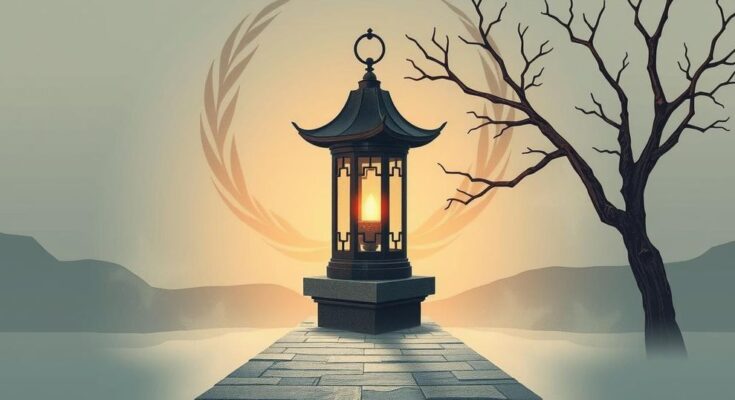Taiwanese human rights activist Lee Ming-che has urgently called for his government to impose strict restrictions on religious exchanges that originate from Chinese organizations. Citing a report from Taiwan News, Lee argued that these exchanges are merely tools for the Chinese Communist Party (CCP) to advance its political agenda, pointedly noting that religious freedom in China is stifled by the necessity for churches to align with Communist Party directives.
Lee’s plea comes in the wake of the detention of three elderly members of the I-Kuan Tao religious group who have been held in China since October. Despite appeals for their release, the individuals remain imprisoned. Taiwanese officials have warned that continued detentions could lead to heightened risks for their citizens traveling to China, potentially halting all religious exchanges across the strait.
In response, China’s Taiwan Affairs Office spokesperson Chen Binhua asserted that the arrests were lawful and that the accused would be given their day in court, dismissing Taiwan’s claims as political tactics aimed at disrupting cross-strait communication. Notably, Lee himself was imprisoned in China for national security threats but was released in 2022.
Taiwan’s Mainland Affairs Council (MAC) has renewed its demand for the release of the detained I-Kuan Tao members, urging Chinese authorities to respect their legal rights and ensure their safe return. Over the past year, the MAC has decried the pattern of illegal arrests targeting Taiwanese religious figures visiting China.
The MAC highlighted ongoing concerns regarding China’s attempts to exert influence over Taiwan under the guise of religious interaction, suggesting that Taiwanese citizens should be wary of travel to the mainland. In a statement from the Taiwan Affairs Office on Friday, three detained Taiwanese—identified only by their surnames Chou, Chiang, and Hsieh—have reportedly been charged with belonging to a cult undermining lawful governance.
Human rights activist Lee Ming-che has urged Taiwan to restrict religious exchanges from Chinese organizations, citing concerns over CCP’s influence and recent detentions of Taiwanese religious members. Taiwanese officials warn of rising risks for citizens traveling to China if these detentions continue, while the MAC calls for the release of detained members and highlights China’s efforts to exert influence under religious pretenses.
Lee Ming-che’s call for limitations on religious exchanges with China underlines the potential risks Taiwanese citizens face when navigating cross-strait interactions. With the detention of three I-Kuan Tao members serving as a stark reminder, Taiwanese officials are increasingly wary of the implications these exchanges have on national security and religious freedoms. The escalating situation necessitates careful diplomatic strategies to safeguard citizens and uphold Taiwan’s religious autonomy.
The ongoing tensions between Taiwan and China over religious practices reflect broader geopolitical considerations. China’s stance on religion is notorious for its restrictive environment, with demands that religious institutions align closely with the Communist Party. The arrests of Taiwanese nationals for religious activities create significant controversies, as they raise alarms about religious freedom and human rights on the mainland, challenging Taiwan’s cultural and operational sovereignty.
Original Source: www.indianarrative.com



